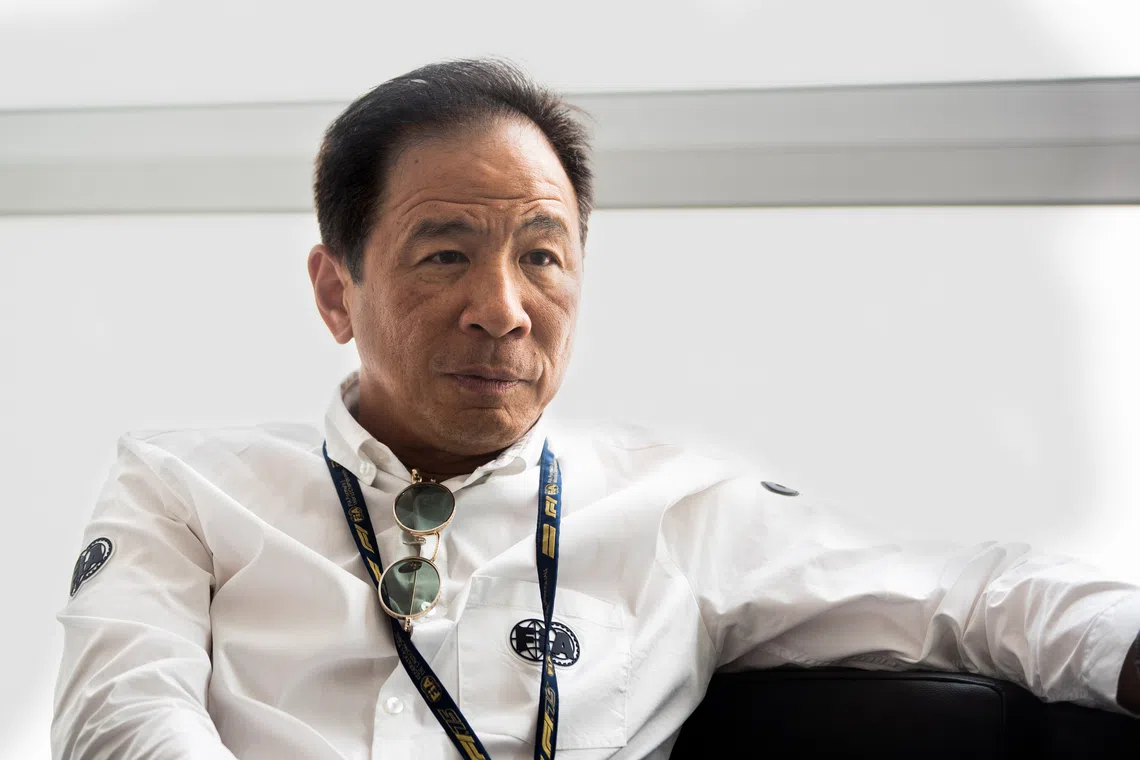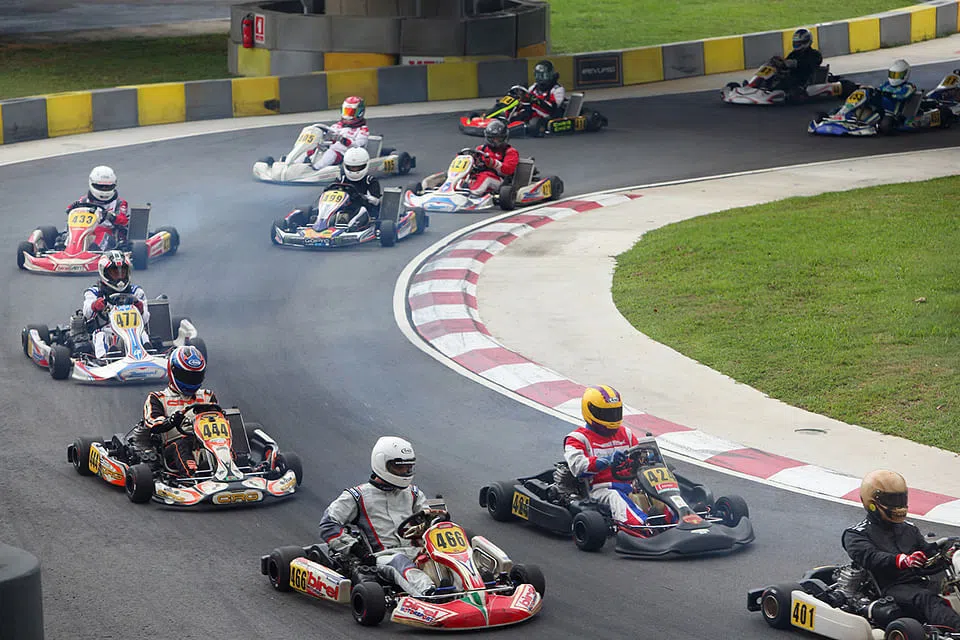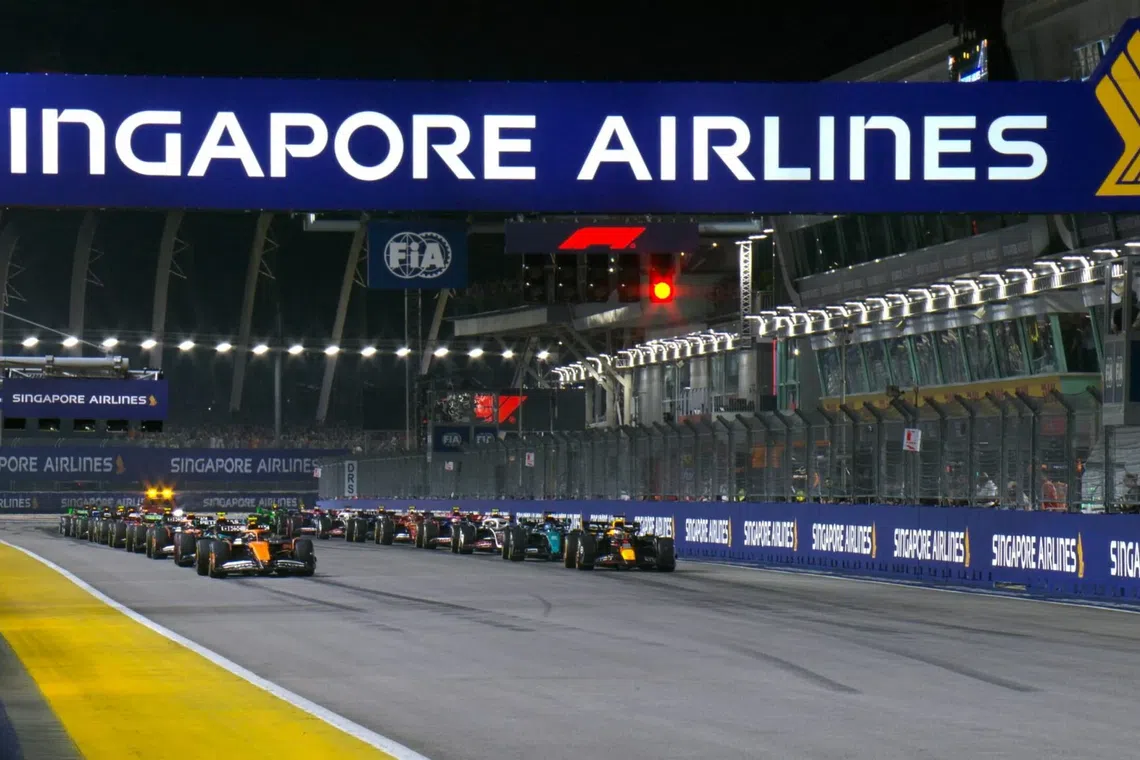From banking to the FIA: What Citi’s new Singapore head brings to the F1 governing body
Lee Lung-Nien has helped turn around a financially dire FIA, to the tune of a net 28.7 million euro swing
[SINGAPORE] Lee Lung-Nien – the first Singaporean in 50 years to be the Citibank country head for Singapore – was one of many corporate chiefs who attended the recently concluded Singapore Grand Prix, but he did so purely as a volunteer.
Outside of his day job, he is the Asia Pacific (Apac) vice president for sport at the Federation Internationale de l’Automobile (FIA), the global motorsports governing body. The FIA oversees racing series such as Formula 1 (F1), Formula E and the World Endurance Championship.
Lee has been part of a remarkable turnaround at the sporting regulator that many may not have seen.
When FIA president Mohammed Ben Sulayem was elected in 2021, the FIA had been haemorrhaging some 24 million euros (S$36 million) a year and was in danger of running out of funds within just a few years. Four years on, after rigorous reviews of processes, systems and controls, the FIA is about to make a profit of about 4.7 million euros instead.
Speaking to The Business Times at the Marina Bay street circuit on Sunday (Oct 5), Lee explained that he was instructed by Ben Sulayem to help the FIA run less like a sports club and more like a corporation, owing to his extensive banking experience. He has since helped appoint key FIA staff who have contributed to this change in FIA’s financial fortunes.
“I think (the FIA president) liked that profile,” said Lee about his 31-year career at Citi. “I was also head of anti-money laundering (AML), so it gives a credibility to (my) position.”
A NEWSLETTER FOR YOU
Friday, 2 pm
Lifestyle
Our picks of the latest dining, travel and leisure options to treat yourself.
When Ben Sulayem was elected, his mandate was built on “transparency”, “governance” and “corporate processes” – summed up by Lee as “doing things properly”. That push for increased professionalism is why the current set of seven FIA vice-presidents on the sporting side have careers in banking, law and finance, said Lee.
Founded in 1904, the FIA (like any long-running organisation) has developed its fair share of legacy issues. Things have “fallen between the cracks” over the years. To remedy that, Lee brought in management oversight, a willingness to ask “tough questions”, and the ability to heighten the FIA’s awareness of any issues in compliance or AML.
“In banking – revenue, expenses; that’s part of our everyday work,” he said. “In the FIA, prior to this current team … the way finance was being run was very different.”
Expenses in the FIA had soared in the five years before Lee took on his FIA role, so he brought in external consultants such as McKinsey & Company to take a fresh look at the organisation’s processes, revenue streams and expenses.
After “quite a bit” of expenses reduction through targeting corporate travel, excess staff and “money-sink” projects, the FIA now sees light at the end of the financial tunnel. Lee attributed that turnaround to more industry professionals joining the FIA.
“It’s like running a company. It’s the same skill sets,” he said. “That’s how you develop credibility, by showing we are responsible stewards of the FIA funds.”
Lee also explained how he helped hire a chief financial officer for the FIA after he joined – a position that, along with the entire commercial team, did not exist prior to the latest FIA administration.
“Everyone was running around doing their own thing,” said Lee. “That’s how you end up with a 24 million euro hole.”
Leveraging connections and experience

Personal and professional connectivity is also something Lee leverages at the FIA. His prior presidency of local racing governing body Motor Sports Singapore allowed him to develop a deep network of connections in the Apac region.
“If the FIA or Formula One Management… needs to connect with, say, (Singapore’s) tourism board… that’s where I step in,” he said, adding that he facilitates an additional avenue of dialogue between the FIA’s European offices and key regional stakeholders.
His experience in the corporate environment at Citi also made him adept at going beyond the regular FIA meetings to cultivate deep ties with motorsports players in Apac.
“Every quarter, or every three times a year, we have a major Zoom call,” he explained. “This is over and above the twice-a-year meetings (officially organised by the FIA).”
These “town halls” are called in between the top-level bi-annual meetings, which include members of the FIA as far up the ladder as the deputy president.
At the same time, he pushed for greater decision-making power for the Apac region, so it did not have to wait for responses from the FIA’s primary offices in France and Switzerland.
In his four years at the FIA, Lee has also set up Apac versions of the FIA Motorsports Games, a sports event held biennially in Europe. The first Asia-Pacific Motorsports Championship was held in 2023, while the second edition was held this year in Sri Lanka from Sep 26 to 27.
This has created opportunities for more countries to compete in international motorsports at the grassroots level, in line with the FIA president’s goal to double motorsports interest globally.
The future of karting in Singapore

In Singapore, karting remains the most popular path to professional racing. However, the KF1 karting circuit in Kranji – laid out by legendary F1 designer Hermann Tilke – is at risk of shutting down after its lease ends in March next year. The track is the only karting circuit here for would-be professional racers to cut their teeth on.
Nevertheless, Lee said it is “too early” to worry about the future of grassroots motorsports in the Republic. He pointed out that, besides karting, there are other avenues to professional racing.
“Drivers… will find a way (to pursue their dreams),” said Lee, listing alternatives such as Gymkhana, autocross and even e-sports. He also said that Singapore has produced good drivers even before KF1’s Kranji circuit existed.
However, he pointed out the reality that there are only 20 drivers – or 22 next year – on the F1 grid due to the prohibitively expensive and cut-throat path to the top. The number of children and teenagers supported by their parents to pursue a racing career also remains “small”, a trend he does not expect to change any time soon.
F1: A halo event for Singapore

Still, Lee said that F1 remains a halo event for Singapore, and an aspiration for Singapore’s hopefuls in the motorsport scene, including Kabir Anurag, Christian Ho and F1 Academy prospect Kareen Kaur.
“It is, I believe, the only high-key premier event that we have in Singapore,” he said. The race concluded its 18th edition on Sunday.
The event brought in S$2.2 billion in tourism receipts from 2008 to 2024, thanks to about 720,000 international visitors. This year, the race had more than 300,000 spectators across all three days, with more than 40 per cent of attendees hailing from overseas.
He noted that Singapore’s “world-class” status as a transportation hub – with its airport, logistics and infrastructure standing out globally – is also vital for the event.
“If you speak to any FIA staff, any team… if you ask them to name their top two races, Singapore will be named,” said Lee, citing the Republic’s strength in organisation. “(The F1 race) has put Singapore on the map.”
He also pointed to efforts by regional neighbours to establish the race in their own countries. Malaysia, for instance, recently concluded that the cost to bring an F1 race back to the Sepang International Circuit would be too high.
In June, the Thai government approved a US$1.2 billion bid to host a Bangkok F1 race in 2028. Despite the geographic proximity, Lee does not believe that it would hurt Singapore’s race.
“It’s good for us,” he said. “If you do it back-to-back, can you imagine? You come to Singapore, then you go to Thailand.”
Lee also said a Bangkok race would be a “great opportunity for Singapore to step up”, and that the FIA will help support the Thailand race promoters as required, if their bid is successful.
Yet such efforts are unlikely to unseat the Republic’s F1 event as the region’s premier race, he said. “I think Singapore will always be special.”

